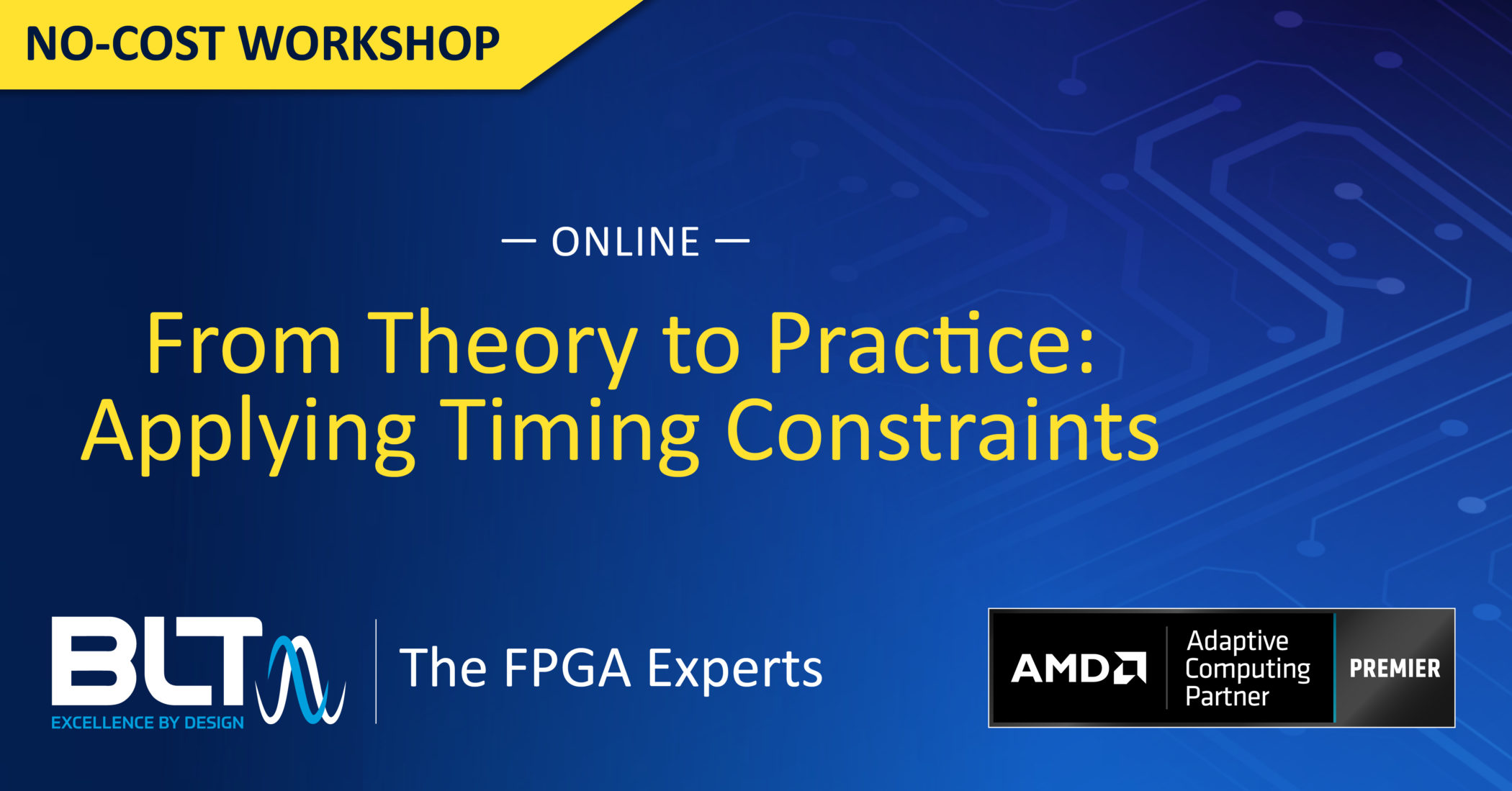From Theory to Practice: Applying Timing Constraints Workshop
From Theory to Practice: Applying Timing Constraints Workshop
Do you struggle to identify which constraints are needed for a design or how to properly input them? This workshop will cover how to use features in Vivado, clock domain crossing strategies, and how to get the most out of static timing analysis for Versal devices.
This workshop provides experience with understanding timing constraints for adaptive SoCs and strategies to improve design performance.
Gain experience with:
- Applying basic timing constraints
- Understanding virtual clocks
- Performing timing analysis
- Applying timing exception constraints
- Reviewing timing reports
This course focuses on the Versal architecture.
COST:
AMD is sponsoring this workshop, with no cost to students. Limited seats available.
SCHEDULED EVENTS
Training Duration:
1 Day (6 hours)
Be the first to know. Sign up for our newsletter.
Who should attend:
Digital designers who need to learn timing constraints in FPGAs and Versal adaptive SoCs with the Vivado Design Suite.
Skills Gained
After completing this comprehensive training, you will know how to:
- Apply clock and I/O timing constraints and perform timing analysis
- Review missing timing constraints in the Timing Constraints Wizard
- Apply timing exception constraints in a design as part of the Baselining procedure to fine tune the design
- Applying clock group constraints for asynchronous clock domains
- Use the report_clock_networks command to view the primary and generated clocks in a design
- Understand the timing summary report
Course Outline
| Day 1 |
|---|
| Introduction to Clock Constraints Shows how to apply clock constraints and perform timing analysis. I/O Constraints and Virtual Clocks Covers applying I/O constraints and performing timing analysis. Timing Constraints Wizard Reviews how use the Timing Constraints Wizard to apply missing timing constraints in a design. Clock Group Constraints Describes applying clock group constraints for asynchronous clock domains. Introduction to Timing Exceptions Introduces timing exception constraints and applying them to fine tune design timing. Report Clock Networks Demonstrates how to use the report_clock_networks command to view the primary and generated clocks in a design. Timing Summary Report Reviews how to use the post-implementation timing summary report to sign off for timing closure. DEMO: Introduction to Clock Constraints DEMO: Generated Clocks DEMO: Report Clock Networks DEMO: Timing Summary Report |
Please note: The instructor may change the content order to provide a better learning experience.

Prerequisites:
- Basic knowledge of the VHDL or Verilog language
- Digital design knowledge